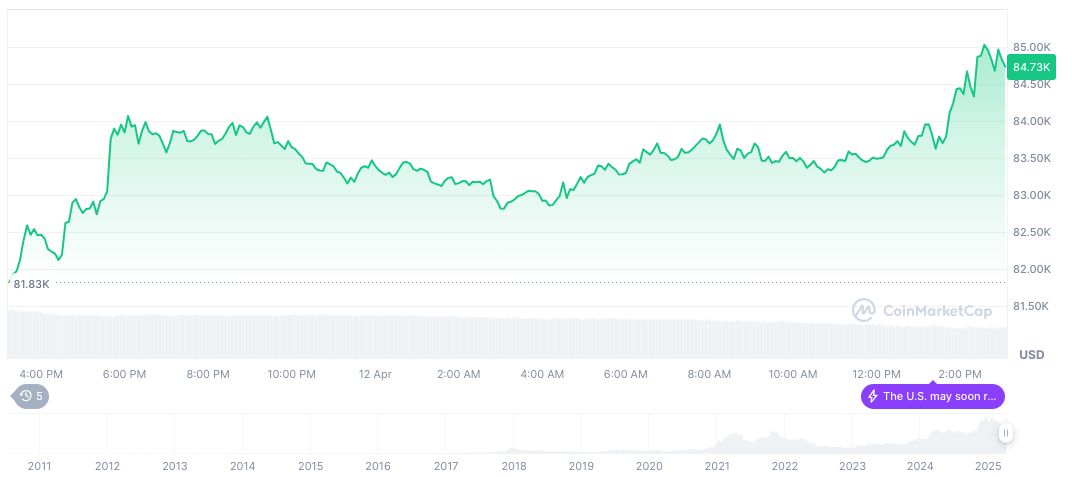- Key Point 1
- Key Point 2
- Key Point 3
BlackRock’s CEO Larry Fink has warned that the United States may already be experiencing a recession, impacting global markets.
Fink highlighted economic pressures resulting from protectionist trade policies, particularly the tariffs from the Trump administration. His comments coincide with potential shifts in Federal Reserve policy that may draw investor interest toward Bitcoin. Analysts suggest that any monetary easing prompted by an economic slowdown could increase liquidity, favoring digital assets.
U.S. Recession Could Shift Crypto Market Dynamics
Larry Fink’s recent interview with CNBC underscores his belief that the U.S. may be nearing a recession. He emphasized that ongoing protectionist trade policies, such as tariffs, exacerbate inflationary pressures and economic stagnation.
Larry Fink has identified possible recession markers in the U.S., signifying economic strain from tariffs. These pressures affect traditional financial markets but could lead to a new approach by the Federal Reserve. Increased liquidity flows into digital currencies, providing a platform for cryptocurrencies like Bitcoin.
If the Federal Reserve relaxes its tightening policies due to economic slowdown, analysts point out this liquidity surge as supportive for the cryptocurrency market. Favorable conditions for Bitcoin and other digital currencies might emerge, attracting investor interest.
Bitcoin’s Resilience Amid Economic Uncertainty Explained
Did you know? After the 2008 financial crisis, a similar monetary easing approach increased liquidity and drove significant Bitcoin interest. This historical pattern supports predictions of Bitcoin’s potential rise if U.S. economic conditions prompt comparable responses.
Bitcoin’s current market metrics, according to CoinMarketCap, include a price of $85,369.02 and a market cap of $1.69 trillion, dominating 62.61% of the market. Despite a 10.26% drop in 60 days, BTC saw a 3.06% rise in 24 hours.

The Coincu research team suggests potential for regulatory shifts influencing investments in real-world assets and increased institutional participation in cryptocurrencies. Bitcoin’s recent price movements indicate market adaptation despite fluctuating conditions.























